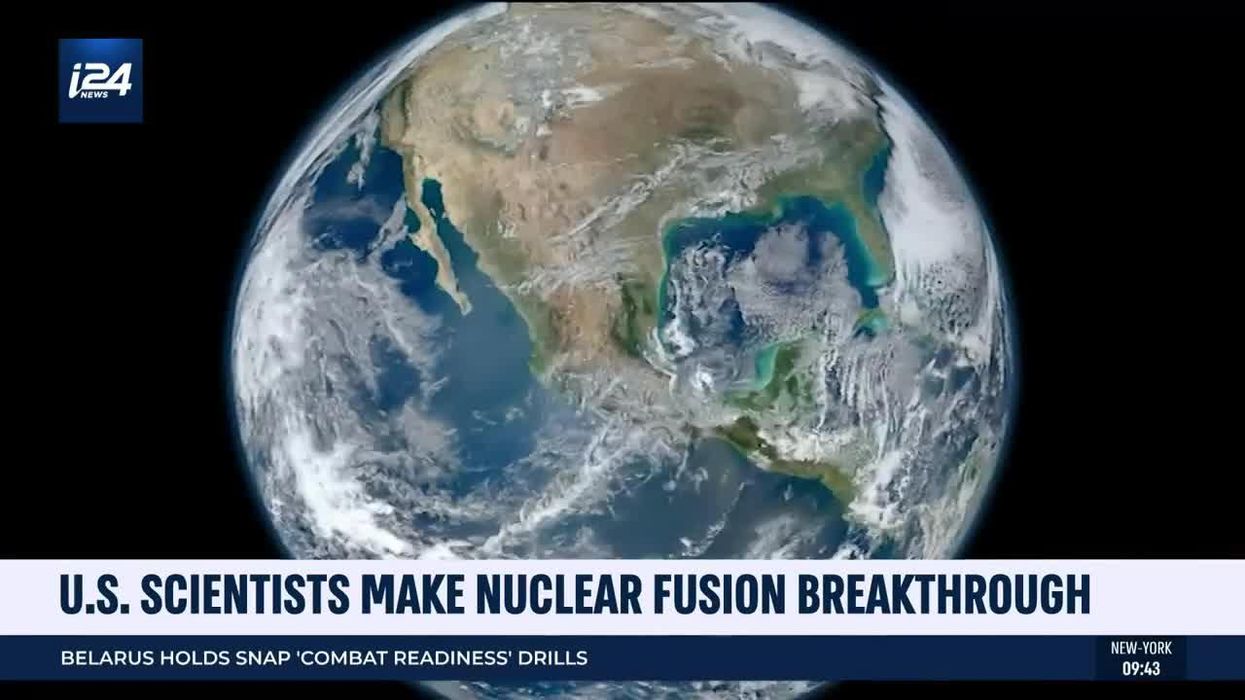Ariana Baio
Dec 13, 2022
U.S. scientists make nuclear fusion breakthrough
content.jwplatform.com
Scientists have reached a major milestone in the world of nuclear fusion that could change the world.
Nuclear fusion is the process in which two or more atoms are fused together to create a larger one. The process results in massive amounts of energy similar to the sun.
However, for decades scientists have been unable to produce the amount of energy it takes to start the reaction.
That is until Tuesday.
Scientists at the Lawrence Livermore National Laboratory in Livermore, California excitedly announced they successfully created a reaction that produced more energy than it required to begin.
Sign up for our free Indy100 weekly newsletter
This breakthrough could set up the world for access to potentially limitless energy.
Here are five ways this breakthrough could change the world.
1. Reduce carbon emissions
A future of commercialized nuclear fusion means major corporations and people could switch to cleaner energy.
Unlike traditional energy sources, including nuclear reactors, nuclear fusion does not emit fossil fuels or create massive amounts of radioactive waste.
Although fusion energy is not 100 percent clean, it is much cleaner than the energy sources we use now.
Secretary of Energy Jennifer Granholm said in a press conference Tuesday that the breakthrough "essentially unlocked a whole new source of clean energy."
Although it will take decades for nuclear fusion to be commercialized.
2. Introduce a safer alternative to energy
Along with being cleaner energy, nuclear fusion plants are believed to be safer than nuclear fission plants.
Nuclear fission is the process by which two atoms are split apart, the plants are known to produce long-lasting radioactive waste that could be harmful to humans if exposed too often.
However, nuclear fusion only produces a small amount of short-lasting radioactive waste, tritium, that is considerably less harmful to humans.
Fusion reactors also cannot cause nuclear explosions.
3. Lessen political conflict over natural resources
Countries with access to vast amounts of natural resources, like oil, are considered powerful because they can dictate the price and energy to other countries.
But with nuclear fusion, any country with the funds, water, and space could set up a plant to provide energy to its people.
This could potentially reduce the amount of political conflict between countries over natural resources.
4. Provide an endless supply of fuel
As of now fuel sources like oil, coal, gas, or uranium must be extracted from the ground in locations where they're abundantly found. However, those won't last forever.
Even cleaner energy sources like solar, geothermal, and wind are not endless.
But since nuclear fusion's main source is water, it could provide endless fuel if scientists were able to harness its power in heating homes and businesses, providing fuel for transportation, and creating electricity.
5. Create opportunities for more advancements
With the power of nuclear fusion, scientists and researchers would have endless supplies of clean energy to research and create new advancements.
One example would be providing clean water to parts of the world without access through desalination.
A nuclear fusion plant would give scientists access to large, abundant amounts of power to strip ocean water of salt and other minerals and create fresh water.
Another example would be using it to power rocket ships and space equipment.
A clean energy source would provide endless opportunities for doctors, scientists, researchers, and students to run as many tests as they need through high-powered machinery.
Have your say in our news democracy. Click the upvote icon at the top of the page to help raise this article through the indy100 rankings.
Top 100
The Conversation (0)














